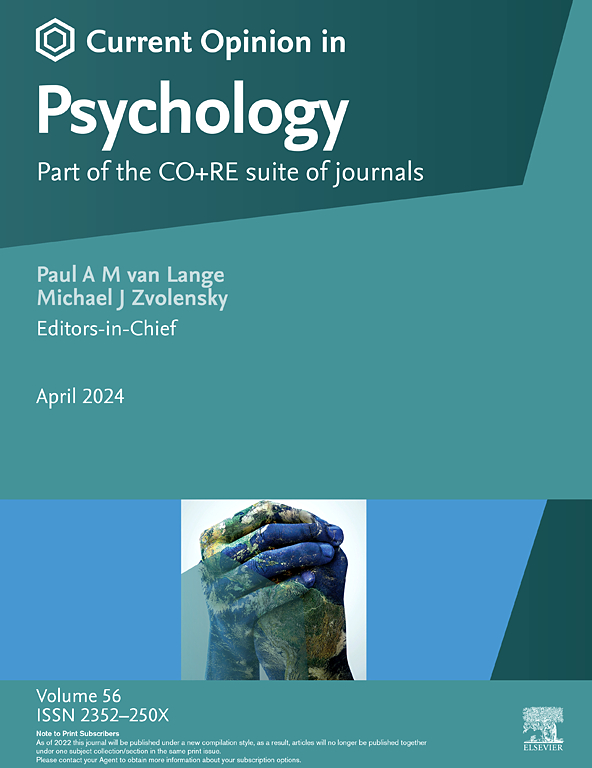Blissful ignorance: A motivated cognition perspective on information avoidance
IF 6.9
2区 心理学
Q1 PSYCHOLOGY, MULTIDISCIPLINARY
引用次数: 0
Abstract
Extant models of willful ignorance—defined as the intentional choice not to seek or use information—typically invoke varying sets of underlying motives. In contrast, we treat willful ignorance as a case of epistemic behavior explained by a broader model of belief formation: Lay Epistemic Theory (Kruglanski, 2004). Drawing from that model, we argue that information avoidance stems from two overarching epistemic motivations: the need for specific certainty (a directional motive) and the need for non-specific certainty (a non-directional motive). Under particular conditions, these motivations may lead individuals to avoid or suppress information. This approach offers conceptual clarity by embedding information avoidance within belief formation processes and provides a unified framework that generates novel insights and testable hypotheses.
幸福无知:信息回避的动机认知视角
现存的故意无知模式——定义为故意选择不去寻找或使用信息——通常会引发不同的潜在动机。相比之下,我们将故意无知视为一种认知行为,这种行为可以通过更广泛的信念形成模型来解释:Lay epistemic Theory (Kruglanski, 2004)。根据该模型,我们认为信息回避源于两个首要的认知动机:对特定确定性的需求(方向性动机)和对非特定确定性的需求(非方向性动机)。在特定条件下,这些动机可能导致个体回避或压制信息。这种方法通过在信念形成过程中嵌入信息回避,提供了概念清晰度,并提供了一个统一的框架,产生新的见解和可测试的假设。
本文章由计算机程序翻译,如有差异,请以英文原文为准。
求助全文
约1分钟内获得全文
求助全文
来源期刊

Current Opinion in Psychology
PSYCHOLOGY, MULTIDISCIPLINARY-
CiteScore
12.10
自引率
3.40%
发文量
293
审稿时长
53 days
期刊介绍:
Current Opinion in Psychology is part of the Current Opinion and Research (CO+RE) suite of journals and is a companion to the primary research, open access journal, Current Research in Ecological and Social Psychology. CO+RE journals leverage the Current Opinion legacy of editorial excellence, high-impact, and global reach to ensure they are a widely-read resource that is integral to scientists' workflows.
Current Opinion in Psychology is divided into themed sections, some of which may be reviewed on an annual basis if appropriate. The amount of space devoted to each section is related to its importance. The topics covered will include:
* Biological psychology
* Clinical psychology
* Cognitive psychology
* Community psychology
* Comparative psychology
* Developmental psychology
* Educational psychology
* Environmental psychology
* Evolutionary psychology
* Health psychology
* Neuropsychology
* Personality psychology
* Social psychology
 求助内容:
求助内容: 应助结果提醒方式:
应助结果提醒方式:


